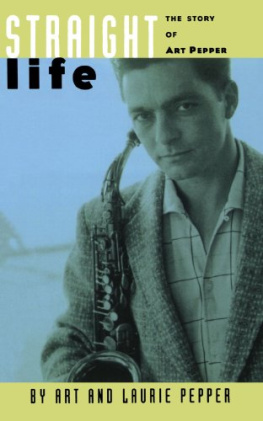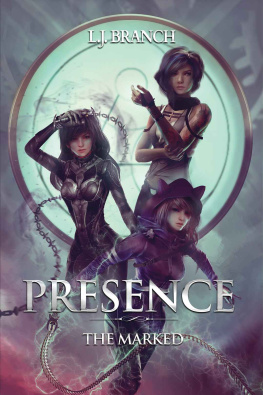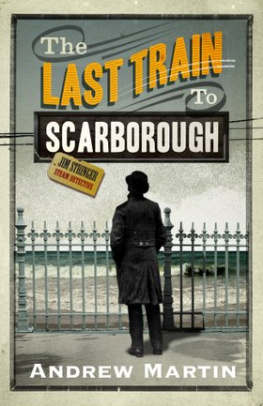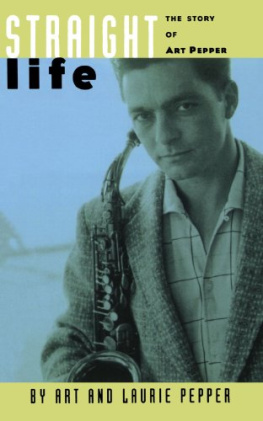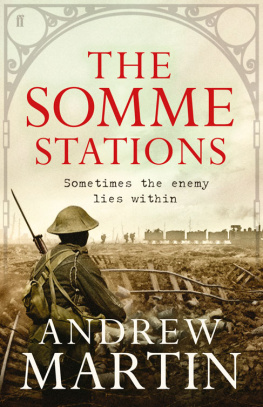Andrew Pepper - The Detective Branch
Here you can read online Andrew Pepper - The Detective Branch full text of the book (entire story) in english for free. Download pdf and epub, get meaning, cover and reviews about this ebook. genre: Detective and thriller. Description of the work, (preface) as well as reviews are available. Best literature library LitArk.com created for fans of good reading and offers a wide selection of genres:
Romance novel
Science fiction
Adventure
Detective
Science
History
Home and family
Prose
Art
Politics
Computer
Non-fiction
Religion
Business
Children
Humor
Choose a favorite category and find really read worthwhile books. Enjoy immersion in the world of imagination, feel the emotions of the characters or learn something new for yourself, make an fascinating discovery.

- Book:The Detective Branch
- Author:
- Genre:
- Rating:4 / 5
- Favourites:Add to favourites
- Your mark:
- 80
- 1
- 2
- 3
- 4
- 5
The Detective Branch: summary, description and annotation
We offer to read an annotation, description, summary or preface (depends on what the author of the book "The Detective Branch" wrote himself). If you haven't found the necessary information about the book — write in the comments, we will try to find it.
The Detective Branch — read online for free the complete book (whole text) full work
Below is the text of the book, divided by pages. System saving the place of the last page read, allows you to conveniently read the book "The Detective Branch" online for free, without having to search again every time where you left off. Put a bookmark, and you can go to the page where you finished reading at any time.
Font size:
Interval:
Bookmark:
Andrew Pepper
The Detective Branch
Paternoster Row
NOVEMBER 1808
He had been looking for his mother among the prostitutes and brothels of the Ratcliff Highway when they had seized him; two pairs of hands that had clasped his coat at the shoulder and lifted him clean off his feet.
A week later, he had been taken to a gloomy building in the shadows of the giant dome of St Pauls which he later discovered was an orphanage. He hadnt known at the time that he was an orphan. He hadnt known what an orphan was.
The dormitory where he and fifty other boys slept, two or three to a bed, was cold and damp. The wind blew right through it and even though they huddled together under a thin blanket for warmth, it was never enough. That first night had been the worst; he hadnt snivelled or cried like some of the boys but he had been so cold that he hadnt been able to stop shaking. Every hour bells would chime and it was difficult to sleep. Occasionally they whispered to one another under the blanket, even though talking at night was strictly prohibited. They lied about their circumstances and what had brought them there; the truth, for most of them, was too painful to bear. Nobody said what they all knew to be true: that they had no one; they had been abandoned and were alone in the world.
The Owl didnt make his rounds the first night he was there. It was said by some of the boys, maybe out of wishful thinking, that the man was suffering from a fever, since he never missed his rounds. But the next night the Owl was back. Alongside the other boys, he shivered and hid under the blanket. They heard the door first of all, creaking on its hinges, and then a thin shaft of light cut through the darkness filtering through the thin fibres of the blanket. After the door had groaned to a close, returning the room to darkness, they could see nothing but they could hear him; the same steady, deliberate footsteps that, over the following year, would become terrifyingly familiar to him. The Owl, he was told, always took his time. He would undertake a couple of lengths of the room, up and down past the beds that were arranged in rows, heads facing the walls, before the footsteps came to a halt; before he had made his choice. As he walked past their bed, they held their breath; no one flinched; no one even blinked. They could smell the pipe tobacco over the odour of floor polish. When the footsteps continued, when they didnt stop, when he was far enough away so he wouldnt hear, they let out a collective sigh of relief. You could see his eyes in the dark, it was said. That was why they called him the Owl. On that second night, he stopped somewhere up at the other end of the narrow room. They didnt hear whose name he called out. The next morning someone told them that it had been Tamworth. As was the unwritten rule, no one sat next to Tamworth the following day while they scoffed their breakfast gruel. It was as though his unhappiness was contagious.
It was not until his third week there that the Owl stopped at the end of his bed. The smell of pipe tobacco was thick in the air, and no one in the bed moved. They heard the Owl take a step in their direction and next to him, Simms flinched. He had been there the longest and knew the most; he knew the worst. They waited. It was clear that the Owl was perched over them, for they could hear him breathing; it was just a question of which one of them he would choose.
Even before the Owl had spoken, somehow he knew that his name would be called out; and he was right.
Pyke.
Pyke felt the other two relax but curiously he wasnt afraid; he would face this man in person and he would not be afraid.
Drury Lane
JULY 1844
ONE
According to a passer-by, three pistol blasts shattered the calm of a trading morning on Drury Lane. They came from inside Cullens pawnbroker shop. According to the witness, Robert Morgan, a printer who had once served in the merchant navy and whod been walking past the shop, the shots were fired in rapid succession. As he later told the police, he stepped into the dingy shop and through the waft of dust and powder he saw two bodies sprawled out on the tiled floor. The owner of the shop, Samuel Cullen, lay on his back in front of the counter, blood seeping from his stomach, his expression oddly resigned. The other man had been shot in the back and had tried to crawl towards the door, perhaps to get help, and a trail of his blood was smeared across the tiles. When Pyke inspected him a few hours later, his hair was matted with blood and his lips were caked with dust. Pyke found the third man under the stairs at the back of the shop, curled up like a baby, and when he laid him out, he saw that the blast must have caught the man in the face because there was almost nothing left of it. His chin, mouth, cheeks and nose had all been pulped by the ball-shot.
The shop was located on Shorts Gardens between a ginnery and an eating house where, on a normal day, a woman with black hair and thick ankles would have been ladling tripe stew into thruppenny bowls. The street name may have conjured images of bucolic tranquillity but in reality it was a narrow, dirty lane in one of the most run-down parts of the city, a tangled knot of decrepit tenements and open cesspools. Children with wan, malnourished faces squatted barefoot in the filth while wolfish dogs scoured the gutters for scraps. Usually the street itself would be choked with fish and vegetable barrows, and donkey carts laden with coal, but because of what had happened, barricades had been erected at either end, and although curious bystanders had begun to mass behind them, it was still eerily quiet.
The pawnbrokers shop was where the neighbourhoods poor came to trade their last possessions silver lockets left to them by their grandmothers and, if they were desperate enough, the boots straight off their feet. The pawnbroker would give them a fraction of the true value of the item they brought in, and a slip of paper allotting sixty days in which to reclaim their property. People rarely did; in which case the items were sold for five or six times more than the pawnbroker had paid.
Cullens shop was typical of its kind and nothing about it suggested that its owner possessed or had ever possessed something that might be worth killing for. The makeshift shelves were stacked with pairs of old boots, petticoats, dirty cotton-print dresses, soldiers uniforms dating back to the time of Napoleon, braces, broken umbrellas, cheap metal combs, mildewed bonnets, torn books and magazines.
Having arrived with two of his sergeants, Whicher and Shaw, Pyke had cleared the shop and inspected the dead bodies. He didnt know, and had never come across, Samuel Cullen another indication of the mans lowly status. Cullen had been identified by the owner of the neighbouring ginnery, who had peered down at the other victims and declared hed never seen them before. But Pyke had. When hed rolled over the corpse of the man whod been shot in the back and had tried to crawl out of the shop, he found himself staring at a face he knew. He stood up suddenly, held his breath and wiped his upper arm across his forehead. Harry Dove was the friend of a friend. A friend, if that was the right word, who wouldnt want his name dragged into a murder investigation.
Know him, then? Whicher said, perhaps because hed seen Pykes reaction.
I thought I did, for a moment, Pyke said, turning away from Whicher to shield his expression.
Oh. If Whicher didnt believe him, he hid the fact well.
You?
Whicher shrugged. What about the other fellow, the one you found under the stairs.
What about him?
Any idea who he is?
Pyke opted to ignore the question. Is Shaw upstairs with the passer-by?
Whicher nodded. He was short, for a policeman. Just five foot eight, the minimum height to gain entry to the force. His dark hair was closely cropped and his clean-shaven face was pitted with smallpox scars. But it was his eyes which stood out: they were emerald green and shone with understated intelligence. He didnt say much but he had a keen eye for detail and a sharp memory. Although the man was young, Pyke already regarded him as his natural successor, or at least the one most capable of taking charge of an investigation. Whicher was cool, methodical and, equally important, he kept himself to himself outside work hours. The others, Pyke had heard, regarded him as aloof.
Font size:
Interval:
Bookmark:
Similar books «The Detective Branch»
Look at similar books to The Detective Branch. We have selected literature similar in name and meaning in the hope of providing readers with more options to find new, interesting, not yet read works.
Discussion, reviews of the book The Detective Branch and just readers' own opinions. Leave your comments, write what you think about the work, its meaning or the main characters. Specify what exactly you liked and what you didn't like, and why you think so.

